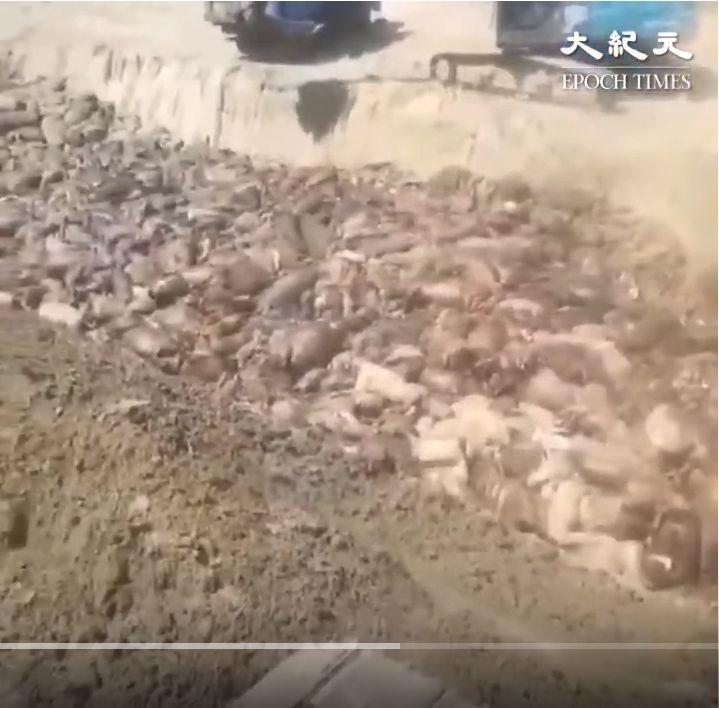Tens of thousands of dead pigs were transported to and buried in a fishing village in China over the past three weeks, which local residents were unaware of until the odor of rotting flesh permeated the entire village.
It was revealed that the burials started on July 29, shortly after county-level officials held a secret meeting with village officials.





